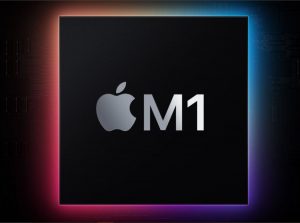Introduction
When it comes to gaming laptops, performance is the key to ensuring smooth gameplay and an immersive gaming experience. One benchmark that can help assess the performance of a gaming laptop is Geekbench. Geekbench is a popular benchmarking tool that measures the overall performance of a device by testing its processor and memory capabilities.
In this article, we will delve into the world of Geekbench scores for gaming laptops and discuss what constitutes a good score. We will explore the factors that affect Geekbench scores, provide guidance on what to look for in an ideal Geekbench score, and compare Geekbench scores with other benchmarks. Additionally, we will provide some tips on how to improve your gaming laptop’s Geekbench score.
Understanding Geekbench scores can be beneficial for both gamers and laptop enthusiasts. Gamers can use Geekbench scores as a reference point when choosing a laptop that can handle the demanding requirements of modern games. Laptop enthusiasts can use Geekbench scores to evaluate the performance of their devices and identify areas for improvement.
Before we dive into the specifics, it’s important to note that Geekbench scores are not the sole determinant of a gaming laptop’s performance. They provide a snapshot of the device’s capabilities but should be considered alongside other factors such as graphics cards, storage options, and cooling systems.
Now that we have established the importance of Geekbench scores in assessing gaming laptop performance, let’s explore the world of Geekbench and uncover what constitutes a good score for a gaming laptop.
What is Geekbench?
Geekbench is a cross-platform benchmarking tool developed by Primate Labs. It is designed to measure the performance of computer processors and memory systems, providing users with numerical scores that can be used to compare devices. Geekbench utilizes a series of tests to evaluate various aspects of a system’s performance, including arithmetic computations, memory operations, and data compression.
The Geekbench benchmarking process involves running a series of tests on the device being evaluated. These tests simulate real-world scenarios and workload patterns to determine how well the device performs. The results are then compiled into a score, with higher scores indicating better overall performance.
One of the key advantages of Geekbench is its cross-platform compatibility. It can be used to benchmark devices running on different operating systems, including Windows, macOS, Linux, iOS, and Android. This makes it a versatile tool for evaluating the performance of various devices, whether they are desktop computers, laptops, or mobile devices.
Geekbench scores are categorized into two main sections: single-core performance and multi-core performance. The single-core score reflects the device’s performance when running tasks that can only utilize a single core of the processor, while the multi-core score reflects the device’s performance when all cores of the processor are utilized.
It’s important to note that Geekbench scores are not a measure of absolute performance but rather a relative benchmarking tool. This means that while Geekbench scores can provide insights into a device’s performance, they should be used in conjunction with other benchmarks and real-world tests to get a comprehensive understanding.
Geekbench is widely regarded as a reliable benchmarking tool in the tech community due to its consistent and repeatable results. It provides users with a standardized metric that can be used to compare devices across different platforms, making it easier to evaluate and make informed purchasing decisions.
In the next section, we will explore how Geekbench scores can be interpreted and understand what factors can influence these scores, particularly when it comes to gaming laptops.
Understanding Geekbench Scores
Geekbench scores are numerical values that indicate the performance of a device, including gaming laptops. These scores are generated based on the results of the benchmark tests conducted by Geekbench.
Each device receives two types of scores: single-core score and multi-core score. The single-core score represents the device’s performance when running tasks that utilize only a single core of the processor, while the multi-core score reflects its performance when all cores are utilized simultaneously.
When interpreting Geekbench scores, it is important to understand that higher scores indicate better performance. However, the specific numeric value of a score should be considered in the context of the device’s intended use. For gaming laptops, the multi-core score is usually more relevant since modern games often benefit from multiple cores.
Geekbench scores are useful for comparing the performance of different devices. By comparing the scores of multiple gaming laptops, you can determine which one offers better performance within a similar price range. However, it is crucial to consider other factors like graphics cards, RAM, and storage when evaluating a gaming laptop’s overall gaming performance.
It’s worth noting that Geekbench scores are not the only factor to consider when assessing gaming laptop performance. The real-world gaming experience may vary depending on the optimization of individual games, the resolution and graphics settings, and the cooling capabilities of the laptop.
When comparing Geekbench scores between different generations or models of processors, it is important to consider the architecture and clock speed. Newer generations or models of processors typically have higher performance capabilities, which can result in higher Geekbench scores.
Keep in mind that Geekbench scores are just one benchmark among many available. It is recommended to consider multiple benchmarks in conjunction with real-world tests and user reviews to get a comprehensive understanding of a gaming laptop’s performance potential.
Now that we have gained an understanding of Geekbench scores, let’s explore the factors that can influence these scores for gaming laptops in the next section.
Factors Affecting Geekbench Scores for Gaming Laptops
When it comes to Geekbench scores for gaming laptops, several factors can influence these scores. Understanding these factors can provide insights into a laptop’s overall performance and help you make an informed decision when choosing a gaming laptop. Below are some key factors to consider:
Processor: The processor, also known as the CPU (Central Processing Unit), is one of the most critical components affecting Geekbench scores. Processors with higher clock speeds, more cores, and advanced architectures tend to achieve better scores. Opting for gaming laptops equipped with the latest generation processors can ensure higher Geekbench scores and better gaming performance.
Graphics Card: While Geekbench primarily focuses on testing the CPU and memory performance, the graphics card, or GPU (Graphics Processing Unit), plays a crucial role in gaming performance. Gaming laptops with dedicated graphics cards generally achieve higher Geekbench scores due to their enhanced graphical capabilities.
RAM: Random Access Memory (RAM) also contributes to a laptop’s Geekbench score by providing the necessary memory resources for efficient multitasking and fast data access. Higher RAM capacities and faster RAM speeds can positively impact Geekbench scores by enabling smoother performance during gaming and other resource-intensive tasks.
Storage Type: The type of storage in a gaming laptop, be it a traditional HDD (Hard Disk Drive) or a faster SSD (Solid State Drive), can affect Geekbench scores. SSDs are generally faster than HDDs, enabling quicker data retrieval and faster boot times. This enhanced storage performance can indirectly contribute to higher Geekbench scores.
Cooling System: A well-designed cooling system is crucial for maintaining optimal performance during extended gaming sessions. Effective cooling prevents overheating and thermal throttling, which can hamper a gaming laptop’s Geekbench scores. Investing in a gaming laptop with a robust cooling system can help maintain peak performance and achieve better Geekbench scores.
Software Optimization: Gaming laptops come with pre-installed software, drivers, and operating systems that can impact Geekbench scores. Regular updates and optimization of the software can potentially improve performance and increase Geekbench scores. Keeping your gaming laptop’s software up to date and utilizing performance-enhancing settings can positively impact its overall performance.
It’s important to note that these factors are interconnected, and optimizing one aspect may positively influence others, resulting in higher Geekbench scores and better gaming performance.
Now that we understand the influential factors behind Geekbench scores for gaming laptops, let’s dive into what constitutes an ideal Geekbench score for gaming laptops in the next section.
Ideal Geekbench Scores for Gaming Laptops
When it comes to determining what constitutes an ideal Geekbench score for a gaming laptop, it’s important to consider various factors such as the processor, graphics card, and overall performance requirements for modern games.
While specific ideal Geekbench scores may vary depending on individual preferences and gaming needs, it is generally recommended for gaming laptops to have higher multi-core Geekbench scores, as most modern games can take advantage of multiple processor cores.
A multi-core Geekbench score of around 4000 to 6000 can be considered a solid starting point for a gaming laptop. This score indicates a capable processor and should be able to handle most modern games with ease. However, it’s worth noting that games with higher graphics requirements or newer releases may benefit from even higher Geekbench scores.
Additionally, having a high single-core Geekbench score is also beneficial as some games rely on single-core performance. A single-core score of around 1000 to 2000 can be considered decent, ensuring smooth gameplay in games that heavily rely on single-core processing.
It’s important to remember that Geekbench scores should be considered alongside other factors that are crucial for gaming performance, such as the graphics card, RAM capacity, and storage type. A well-balanced combination of these components is key to achieving optimal gaming performance.
Furthermore, the ideal Geekbench score can vary depending on the desired gaming experience. If you wish to play graphically intense games at the highest settings, you may want a gaming laptop with even higher Geekbench scores.
Lastly, it’s worth mentioning that technology is constantly evolving and newer processors and components are regularly released with improved performance capabilities. Thus, the ideal Geekbench score for a gaming laptop is not a static number, but rather a range that will evolve over time as new hardware is introduced to the market.
Now that we have discussed the ideal Geekbench scores for gaming laptops, let’s explore how Geekbench scores can be compared with other benchmarks in the next section.
Comparing Geekbench Scores with Other Benchmarks
Geekbench scores provide a valuable metric for assessing the performance of gaming laptops. However, it’s important to consider Geekbench scores in conjunction with other benchmarks to get a comprehensive understanding of a laptop’s performance. By comparing Geekbench scores with other benchmarks, you can gain a more well-rounded perspective. Here are a few benchmarks often used in conjunction with Geekbench scores:
3DMark: 3DMark is a popular benchmarking tool that focuses specifically on gaming performance. It assesses a gaming laptop’s graphics and GPU capabilities, providing insights into how well it can handle graphically demanding games. Comparing a gaming laptop’s Geekbench scores with its 3DMark scores can give a more holistic view of its gaming performance potential.
PCMark: PCMark is another widely used benchmarking tool that assesses a gaming laptop’s overall performance in various real-world scenarios. It tests tasks like web browsing, video editing, and photo manipulation, providing a broad measure of a laptop’s capabilities beyond gaming. Combining Geekbench scores with PCMark scores can give a more comprehensive understanding of a laptop’s performance across different applications.
Unigine Heaven: Unigine Heaven is a benchmarking tool specifically designed to test a gaming laptop’s graphical capabilities under heavy loads. It focuses on assessing frame rates, visual quality, and the overall stability of a system during intense gaming sessions. Combining Unigine Heaven scores with Geekbench scores can provide a clearer picture of a gaming laptop’s ability to handle graphically demanding games.
Comparing Geekbench scores with other benchmarks allows you to assess a gaming laptop’s performance from different angles. It can provide a more well-rounded perspective on factors such as CPU performance, GPU capabilities, and overall system stability.
It’s worth noting that benchmarks provide an objective measure of performance, but real-world experience may vary due to factors like game optimization, driver updates, and user-specific settings. Therefore, it’s always recommended to read user reviews and consider real-world gaming tests alongside benchmark scores for a comprehensive evaluation of gaming laptop performance.
Now that we have explored the comparison of Geekbench scores with other benchmarks, let’s move on to the next section, where we will discuss tips to improve your gaming laptop’s Geekbench score.
How to Improve Your Gaming Laptop’s Geekbench Score
If you want to boost your gaming laptop’s Geekbench score and enhance its overall performance, there are several steps you can take. Here are some tips to help you improve your gaming laptop’s Geekbench score:
Upgrade your hardware: Consider upgrading key components of your gaming laptop, such as the processor, graphics card, and RAM. Upgrading to a faster and more powerful processor with multiple cores can significantly improve your Geekbench scores. Similarly, investing in a higher-performance graphics card can enhance your gaming laptop’s graphical capabilities, resulting in a better overall score.
Optimize your operating system: Ensure that your operating system is up to date and optimized for performance. Regularly installing updates, removing unnecessary software and files, and optimizing power settings can help your gaming laptop run more efficiently and potentially boost your Geekbench scores.
Manage your system’s thermals: Overheating can adversely affect your gaming laptop’s performance. Keep your laptop’s cooling system clean and free from dust, optimize airflow, and consider using a laptop cooling pad or external cooling solutions to help maintain optimal temperatures. Cooler components can lead to better system stability and improved performance, resulting in higher Geekbench scores.
Maximize your power settings: Adjusting your power settings can help your gaming laptop perform at its best. Make sure that your laptop is set to the “High Performance” power plan, as this can increase CPU performance and potentially boost your Geekbench scores. However, keep in mind that this might lead to increased power consumption and reduced battery life.
Upgrade your storage: Consider upgrading your storage to a faster SSD if you are still using a traditional HDD. SSDs provide faster data access and transfer speeds, resulting in improved overall system performance. This can positively impact your Geekbench scores, particularly in tasks that involve reading and writing data.
Clean your system from malware: Malware and viruses can slow down your gaming laptop and negatively impact its performance. Regularly scan and clean your system using reputable antivirus software to ensure that your laptop is free from any malicious programs that could be affecting your Geekbench scores.
Optimize your software and drivers: Keeping your software and drivers up to date is essential for optimum performance. Regularly check for updates for your operating system, drivers, and software applications, as new updates often include performance optimizations. Up-to-date software can help improve your gaming laptop’s responsiveness and potentially increase your Geekbench scores.
By following these tips, you can optimize your gaming laptop’s performance and potentially achieve higher Geekbench scores. However, keep in mind that individual results may vary, and it’s essential to consider the specific hardware and limitations of your gaming laptop.
Now that we have explored ways to improve your gaming laptop’s Geekbench score, let’s wrap up this article with some final thoughts.
Final Thoughts
Geekbench scores are a valuable tool for evaluating the performance of gaming laptops. By understanding Geekbench scores and considering other benchmarks, you can make more informed decisions when purchasing a gaming laptop.
When interpreting Geekbench scores, remember to take into account factors such as the processor, graphics card, RAM, and storage type. These components, along with software optimization and a robust cooling system, can have a significant impact on a gaming laptop’s Geekbench scores and overall gaming performance.
While Geekbench scores provide a useful metric, they should not be the sole determinant of a gaming laptop’s performance. Real-world gaming tests, user reviews, and other benchmarks like 3DMark and PCMark can provide a more comprehensive picture of a gaming laptop’s capabilities.
If you are looking to improve your gaming laptop’s Geekbench score, consider upgrading hardware components, optimizing your operating system, managing thermal performance, and keeping your software up to date. These steps can help enhance your laptop’s performance and potentially achieve higher Geekbench scores.
Ultimately, the ideal Geekbench score for a gaming laptop depends on your specific gaming needs and preferences. It’s important to strike a balance between performance, budget, and future-proofing to ensure an enjoyable gaming experience.
By understanding Geekbench scores, comparing benchmarks, and implementing performance-enhancing measures, you can make informed decisions when choosing or upgrading your gaming laptop. Remember to consider your specific gaming requirements, and always stay up to date with the latest advancements in hardware and software to optimize your gaming experience.
We hope this article has provided valuable insights into Geekbench scores for gaming laptops and empowered you to make informed decisions when it comes to choosing or improving your gaming laptop’s performance.

























